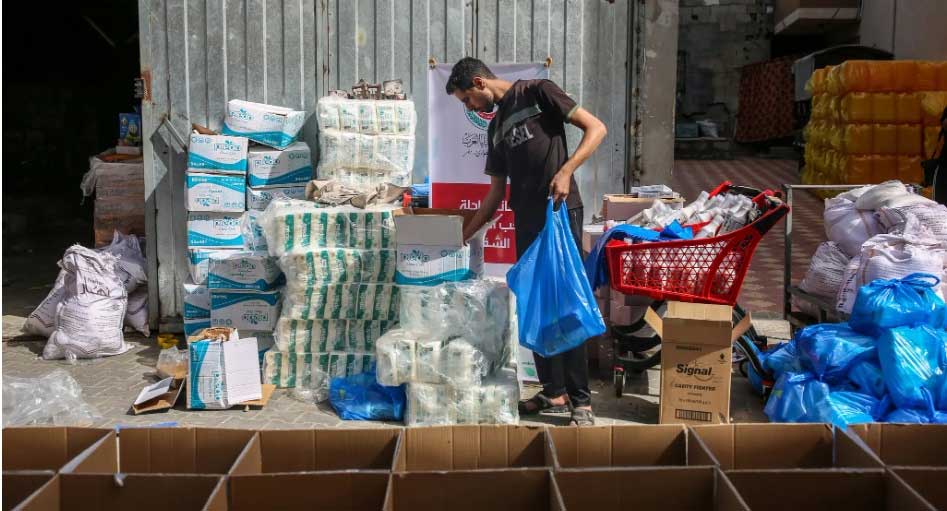UNITED NATIONS: United Nations aid agencies say the first 20-truck convoy of assistance that reached Gaza on Saturday is “only a small beginning and far from enough.”
In a joint statement, the agencies – UN Development Programme (UNDP), the UN Population Fund (UNFPA), the UN Children’s Fund (UNICEF), the World Food Programme (WFP) and the World Health Organization (WHO) – said more than 1.6 million people are in critical need of humanitarian aid the enclave battered by Israeli bombing raids.
“Vulnerable people are at greatest risk and children are dying at an alarming rate and being denied their right to protection, food, water and health care,” the agencies said.
“Gaza was a desperate humanitarian situation before the most recent hostilities. It is now catastrophic. The world must do more,” they said.
The aid that entered Gaza on Saturday “is only a small beginning and far from enough”, five UN agencies said in the joint statement. They called for a humanitarian ceasefire and safe access to civilians in efforts to save lives and prevent more suffering.
Hundreds of trucks are waiting at the border. Pakistan has also dispatched a plane-load of humanitarian assistance for Palestinian people in Gaza.
This “first, but limited shipment” will provide “an urgently needed lifeline to some of the hundreds of thousands of civilians, mostly women and children, who have been cut off from water, food, medicine, fuel and other essentials,” the UN agencies said, “but it is only a small beginning and far from enough.”
Their statement highlighted the immense needs in the wake of the Israel-Gaza crisis, which began on 7 October after Hamas militants launched attacks in Israel, killing scores and seizing more than 100 hostages.
Israel responded with deadly air strikes and bombardment, a complete siege of Gaza, and ordered civilians to evacuate the northern part of the enclave.
More than 1.6 million people in Gaza are in critical need of humanitarian aid, it was pointed out. Children make up nearly half the population is among the most vulnerable, along with pregnant women and elderly persons.
Furthermore, two weeks of constant bombings have left much of the civilian infrastructure in Gaza damaged or destroy, including shelters, health facilities, water, sanitation, and electrical systems.
The agencies warned that “time is running out before mortality rates could skyrocket due to disease outbreaks and lack of healthcare capacity.”
Gaza’s hospitals are “overwhelmed with casualties” and people are facing mounting challenges accessing essential food supplies, they said. Health facilities no longer have fuel and are running on small amounts, which are expected to run out in the next day or so. Meanwhile, water production capacity is at five percent of normal levels.
“Pre-positioned humanitarian supplies have already been depleted. Vulnerable people are at greatest risk and children are dying at an alarming rate and being denied their right to protection, food, water and health care,” they said.
Prior to the conflict, nearly one-third of the population of Palestine was food insecure. Today shops are running low on stocks, bakeries are closing, while tens of thousands are displaced and unable to cook or safely purchase food.
The UN agencies called for a humanitarian ceasefire, along with immediate, unrestricted humanitarian access throughout Gaza to allow aid workers to reach civilians in need, save lives and prevent further human suffering.
“Flows of humanitarian aid must be at scale and sustained, and allow all Gazans to preserve their dignity,” they said.
They appealed for safe and sustained access to water, food, health – including sexual and reproductive health – as well as fuel, and for the protection of civilians and civilian infrastructure, including health facilities.
“We call for the protection of humanitarian workers in Gaza who are risking their lives in the service of others,” they added. “And we call for the utmost respect of international humanitarian law by all parties. – APP
First aid shipment to Gaza seen insufficient as crisis worsens




